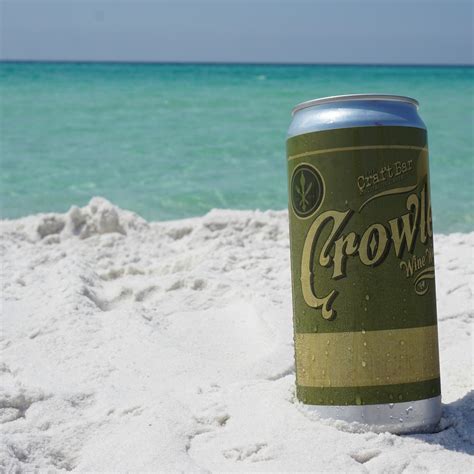How can men naturally boost low testosterone levels for improved energy & drive?

Low testosterone, often referred to as “low T,” can significantly impact a man’s quality of life, manifesting through symptoms like decreased energy, reduced libido, mood changes, and difficulty building muscle. While various medical interventions exist, many men are seeking natural, sustainable ways to support healthy testosterone levels. The good news is that several lifestyle modifications can make a profound difference, empowering men to regain their vitality and drive.
Understanding Low Testosterone and Its Impact
Testosterone is a crucial hormone for male health, influencing everything from bone density and muscle mass to mood and sexual function. As men age, a natural decline in testosterone production occurs, but poor lifestyle choices can exacerbate this process, leading to premature or more severe symptoms. Identifying these natural pathways to improvement is key to holistic well-being.

Dietary Strategies: Fueling Testosterone Production
What you eat plays a direct role in hormone synthesis. Focusing on a balanced diet rich in specific nutrients can provide the building blocks for testosterone production.
- Healthy Fats: Incorporate monounsaturated and polyunsaturated fats from sources like avocados, nuts, seeds, olive oil, and fatty fish (salmon, mackerel). Cholesterol, a precursor to testosterone, is derived from dietary fats.
- Protein: Adequate protein intake (lean meats, poultry, eggs, dairy, legumes) supports muscle growth and overall hormonal health.
- Carbohydrates: Don’t shun carbs entirely. Complex carbohydrates from whole grains, fruits, and vegetables provide energy and help regulate cortisol, a stress hormone that can suppress testosterone.
- Micronutrients: Pay special attention to Zinc (oysters, beef, pumpkin seeds) and Vitamin D (sunlight exposure, fatty fish, fortified foods), as deficiencies in these are strongly linked to lower testosterone. Magnesium is also vital.
- Limit Processed Foods & Sugars: These can contribute to inflammation and insulin resistance, both detrimental to testosterone levels.
Exercise Regimen: Strength & Stamina
Physical activity, particularly certain types, is a powerful natural testosterone booster.
- Strength Training: Lifting weights, especially compound movements (squats, deadlifts, bench presses), is highly effective. Aim for 3-4 sessions per week, focusing on progressive overload.
- High-Intensity Interval Training (HIIT): Short bursts of intense exercise followed by brief recovery periods have been shown to elevate testosterone.
- Avoid Overtraining: While exercise is good, excessive or prolonged endurance training without adequate recovery can actually decrease testosterone by increasing cortisol.

Optimize Sleep: The Unsung Hero
Quality sleep is non-negotiable for hormone production. Most of a man’s daily testosterone is produced during sleep.
- Aim for 7-9 Hours: Consistent, uninterrupted sleep is crucial. Even minor sleep deprivation can significantly impact testosterone levels.
- Improve Sleep Hygiene: Create a dark, cool, quiet bedroom. Avoid screens before bed, and establish a regular sleep schedule.

Manage Stress: Taming Cortisol
Chronic stress leads to elevated cortisol levels, which has a direct inverse relationship with testosterone. When cortisol goes up, testosterone often goes down.
- Mindfulness & Meditation: Practices like meditation, deep breathing, and yoga can significantly reduce stress.
- Hobbies & Relaxation: Engage in activities you enjoy to unwind and de-stress.
- Time Management: Better organization can reduce feelings of being overwhelmed.

Lifestyle Choices & Supportive Supplements
Beyond the core pillars, other lifestyle factors and carefully considered supplements can play a role.
- Limit Alcohol: Excessive alcohol consumption can negatively impact testosterone production and liver function.
- Maintain a Healthy Weight: Obesity is strongly linked to lower testosterone. Losing excess body fat, particularly around the abdomen, can help improve levels.
- Avoid Endocrine Disruptors: Be mindful of plastics (BPA), certain pesticides, and chemicals that can interfere with hormone function.
- Natural Supplements (with caution): While no supplement is a magic bullet, certain natural compounds like Ashwagandha (for stress reduction), Fenugreek, and D-Aspartic Acid have shown some promise in studies, though results vary. Always consult a healthcare professional before starting any new supplement regimen.

Conclusion: A Holistic Approach for Lasting Results
Naturally boosting testosterone is not about quick fixes but rather a commitment to a healthier lifestyle. By consistently implementing strategies related to diet, exercise, sleep, and stress management, men can significantly improve their testosterone levels, leading to enhanced energy, drive, and overall well-being. Remember that individual results may vary, and it’s always advisable to consult with a healthcare professional to diagnose low testosterone and to tailor a plan that’s right for you, especially if symptoms persist or are severe.









